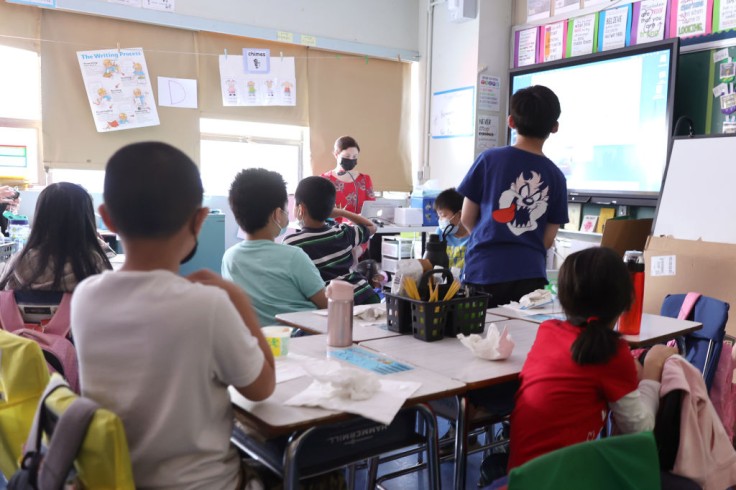
Math and reading scores for 13-year-olds in the US have reached their lowest levels in decades, with math scores experiencing the largest decline ever recorded, according to the results of the National Assessment of Educational Progress, also known as the nation's report card.
According to ABC7, these scores reflect the significant learning setbacks caused by the pandemic. The latest test, administered from October to December 2022 to a national sample of 8,700 students in each subject, revealed that average math scores fell by 9 points between 2020 and 2023, while reading scores dropped by 4 points.
According to LA Times, the impact of remote learning during the pandemic played a significant role in the decline of scores. Barry Weiss, who runs Mathnasium Sherman Oaks, noted that the setbacks were not limited to specific areas of math but rather a result of students missing out on a year or two of schooling. Many parents, like Shaindee Kreitenberg, observed the struggles their children faced while trying to learn remotely.
Pandemic Learning Setbacks: Impact on Math and Reading Scores Revealed
The effects of the pandemic were previously seen in the results for fourth- and eighth-grade students, and now the latest scores for 13-year-olds indicate a further decline in academic performance. The drop erases earlier gains made in the years leading up to 2012, with math scores now at their lowest levels since 1990 and reading scores at their lowest since 2004.
Of particular concern are the disproportionate decreases among the lowest-performing students. While students of all achievement levels saw declines, lower-performing students experienced more significant drops, with decreases ranging from 12 to 14 points compared to 6 to 8 points for stronger students. Racial disparities were also evident, with American Indian students experiencing a 20-point drop in math scores, followed by Black students at 13 points.
The decline for white students was 6 points, while Asian students held steady. The impact of the pandemic disruptions has been especially challenging for Black and Latino students and those from low-income families. Denise Forte, president and CEO of the Education Trust, emphasized the disproportionate effects on these groups and the urgent need to address the learning loss they have experienced.
Despite the investment of billions of dollars in recovery efforts, including tutoring, summer classes, and other interventions, the lingering setbacks indicate that catching up will require significant time and effort. Dr. Tyrone Howard, a professor of education at UCLA, stressed the need to focus on the students who have fallen behind, particularly those growing up in poverty and those from Black and Latino communities.
Read Also : 2-Year-Old Ohio Boy's Gun Access Ends in Fatal Shooting of Pregnant Mother, Unborn Brother
Challenges Ahead: Addressing Learning Loss and Closing the Academic Gap
Experts warn that cooperation between parents and educators will be crucial in helping students move forward and regain lost ground. The scale of the challenge suggests that it may take several years to bridge the learning gaps created by the pandemic.
"We know that students across the board really struggled, and the data show us that," said Dr. Howard. "We have to drill down on those students who really fell behind, and we know who those students are. They're students who are growing up in poverty; they're students whose first language is English; and they're Black and Latino students."
The scores reflect the disproportionate impact of the pandemic's disruptions on Black and Latino students and those from low-income families, said Denise Forte, president and CEO of the Education Trust, a nonprofit advocacy group. "Students want to succeed, attend college, start a rewarding career, and reach their full academic potential," Forte said. "But they can't if they continue to lose precious ground."
Pandemic setbacks appear to be lingering even as schools across the U.S. spend billions of dollars to help students catch up. The federal government sent historic sums of money to schools in 2021, allowing many to expand tutoring, summer classes, and other recovery efforts.
Experts fear it's going to take years to catch up and say it will take cooperation between parents and educators to get students moving forward. The deep learning setbacks incurred during the pandemic have had a lasting impact on academic achievement, and concerted efforts are needed to support students in their educational journey.
Related Article : University of Wyoming's Kappa Kappa Gamma Sorority Lawsuit Challenges House Rules on Transgender Women's Inclusion